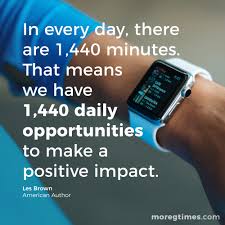Thanksgiving, Guestbooks and Everyday Opportunities
I remember one time as a kid growing up my parents were selling a used car in our driveway. And they were asking a or a few thousand dollars and a Hispanic man with a friend, knocked on the door and offered like $1000 for it. And my father said no he is asking three thousand. And the man turned to his friend in Spanish and said the Jew isn’t for real, we can bargain him down. Now as you know my father is from Bogota Colombia and he is obviously fluent in Spanish, but I guess a Jewish dentist named Goldstein didn’t exactly fit the picture they had in their mind of a Spanish speaker. Be that as it may, my father answered them in Spanish that this Jew is absolutely dead serious and you can get out of here. One can only imagine how startled the two men were when they realized that every word that they had said was understood.
This is exactly what happens to Yaakov at the outset of our parsha. Yaakov is about to undertake a long arduous journey from Israel to Charan. He is fleeing his brother Eisav’s murderous designs. And on his way, with nothing but mountains and desert in sight, he pulls over to the side of the road, and goes to sleep. Little did he realize that he was about to experience one of the major prophecies in Jewish history. You see that night G-he had a vision. He beheld a ladder that was standing on the ground and its head reached the heavens. Angles were going up and down the latter. And on top of the ladder is G-d himself. G-d says to him that He will be with him on this journey and he will bless him and that he will give that land to his descendants. Yaakov suddenly woke up startled and petrified. He was aghast, how could I have slept in such a holy place? G-d’s presence is here? According to tradition, this was the Temple MoutHar HaMoriah. Yaakov was horrified that he almost not only squandered, but also offended the holiest place on earth.
My friends, this story of Yaakov, is the story of life itself. I want to share with you a beautiful and poignant article I saw this week titled: “The Empty Pages of our Guestbook” and in it, Michael Feldstein tells the wistful story of his family’s now empty guestbook. In August 2005, we were asked to host a young man from Memphis for Shabbat. He was quite personable, and we enjoyed our Shabbat meals together, delighted to have been able to offer him hospitality for the weekend.
When he was ready to leave on Saturday night, he asked, “Do you have a guest book that I can sign?”Apparently, a guest book was standard fare in the southern community where he grew up, and he was wondering if we had one. We told him that we didn’t, but my wife and I were quite intrigued by the idea, given how often we hosted company for Shabbat. So we found an empty notebook—and the Feldstein Guest Book was thus created, with the young man from Memphis having the honor of being the very first entry.
I was thinking about our guest book recently. We actually completed our initial guest book a few years ago, and now have a second guest book that we started. But since the pandemic began in March this year, we haven’t hosted any guests … and the pages of our book have sadly remained empty. This week, I retrieved our first guest book from our bookcase—and glanced back at all of the comments from guests who we have hosted over the years. It was a real trip down memory lane! Most of the names I recognized. A few I couldn’t place. But all of the comments were uniformly appreciative of the hospitality we had extended. It made me feel so good that we were able to engage in this important mitzvah for so many years, for so many people. God willing, a COVID-19 vaccine will soon be widely available to all of us, and we will be able to once again host guests in our home for Shabbat. Yes, there will be a big gap in the date from the last entry to the first post-COVID entry in our guest book. But my wife and I are looking forward to filling the empty pages that still remain with new comments from those we will soon be inviting once again.
I share this story with you because it captures a very small but incredible opportunity we have every day and every week to do the incredible mitzvah. The truth is that there are countless other examples of everyday opportunities that we have in life. From visiting the sick and honoring our parents
to Torah study and davening. In reality, Feldsteins Guestbook is a metaphor for life itself. G-d puts us on his earth and it would be a tragedy if there was a big gap in the book of our lives from the day we were born until the day we pass! On the contrary, we need to fill those pages! Because if we don’t we will have a Yaakov Avinu moment. We will wake up from our sleep one day aghast that we squandered this precious thing called life. That we didn’t take advantage of the holiness of the everyday opportunities we have to do mitzvot and bring sanctity in this world. The rhythm of daily life puts us to sleep such that we forget the incredible opportunity that we have each and every day! And as we celebrate Thanksgiving this year, if I may be so bold, I would suggest that this is something that we can all be thankful for. We can all be thankful for the everyday opportunities that
HaShem gives us to good, to help others, to connect to spirituality. In short, we can be thankful for life itself. And in the merit that we fill the pages of the guestbook of life, may we bring.

